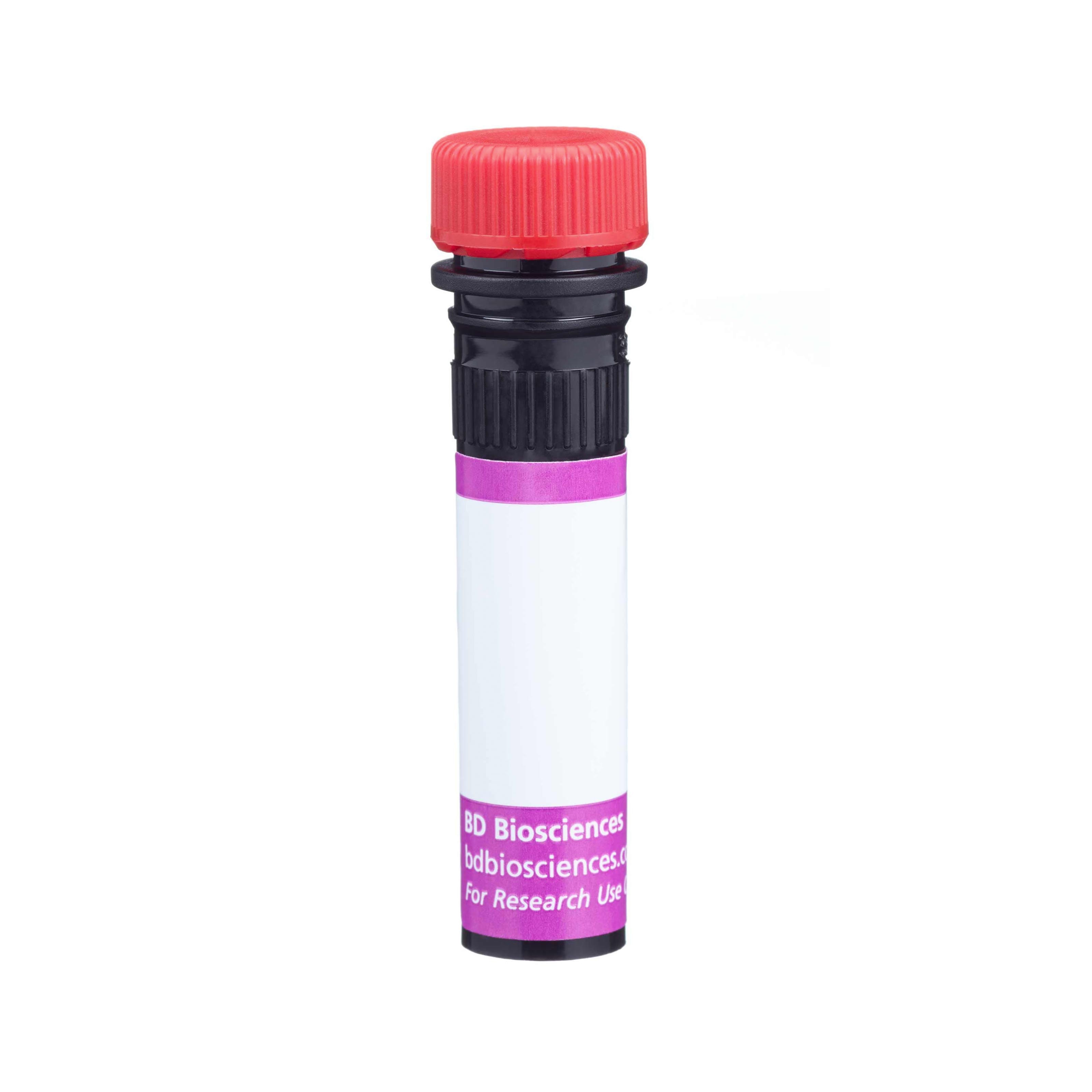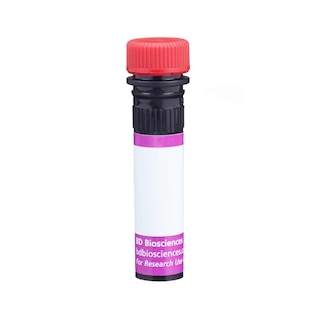Old Browser
This page has been recently translated and is available in French now.
Looks like you're visiting us from {countryName}.
Would you like to stay on the current country site or be switched to your country?


Regulatory Status Legend
Any use of products other than the permitted use without the express written authorization of Becton, Dickinson and Company is strictly prohibited.
Preparation And Storage
Recommended Assay Procedures
For optimal and reproducible results, BD Horizon Brilliant Stain Buffer should be used anytime two or more BD Horizon Brilliant dyes (including BD OptiBuild Brilliant reagents) are used in the same experiment. Fluorescent dye interactions may cause staining artifacts which may affect data interpretation. The BD Horizon Brilliant Stain Buffer was designed to minimize these interactions. More information can be found in the Technical Data Sheet of the BD Horizon Brilliant Stain Buffer (Cat. No. 563794).
Product Notices
- This antibody was developed for use in flow cytometry.
- The production process underwent stringent testing and validation to assure that it generates a high-quality conjugate with consistent performance and specific binding activity. However, verification testing has not been performed on all conjugate lots.
- Researchers should determine the optimal concentration of this reagent for their individual applications.
- An isotype control should be used at the same concentration as the antibody of interest.
- Caution: Sodium azide yields highly toxic hydrazoic acid under acidic conditions. Dilute azide compounds in running water before discarding to avoid accumulation of potentially explosive deposits in plumbing.
- For fluorochrome spectra and suitable instrument settings, please refer to our Multicolor Flow Cytometry web page at www.bdbiosciences.com/colors.
- Please refer to www.bdbiosciences.com/us/s/resources for technical protocols.
- BD Horizon Brilliant Stain Buffer is covered by one or more of the following US patents: 8,110,673; 8,158,444; 8,575,303; 8,354,239.
- BD Horizon Brilliant™ Violet 750 is covered by one or more of the following US patents: 8,158,444; 8,802,450; 8,575,303; 8,455,613; 8,227,187; 8,841,072; 8,110,673.
Companion Products






The KT50 antibody reacts with some members of the Vα 8 T-cell Receptor (TCR) subfamily of mice having the a, b, c, and d haplotypes of the Tcra gene complex (e.g., all strains tested). It recognizes an epitope in the CDR1 of Vα 8.3, but not Vα 8.2, TCR subfamily member, as does the B21.14 mAb (Cat. no. 553374). Site-directed mutagenesis has identified three amino acids which are necessary for antibody reactivity and which are unique to Vα 8.3 among the five functional Vα 8 TCR subfamily members. On a common H-2[k] background, the frequency of Vα 8.3 TCR-bearing T lymphocytes is higher in Tcra[a/a] mice than in Tcra[a/b] mice. Furthermore, studies of congenic strains suggest that CD8+ Vα 8.3 TCR-bearing T lymphocytes undergo negative selection in mice expressing MHC class I antigens of the H-2[d] haplotype.
The antibody was conjugated to BD Horizon™ BV750 which is part of the BD Horizon Brilliant™ Violet family of dyes. This dye is a tandem fluorochrome of BD Horizon BV421 with an Ex Max of 405-nm and an acceptor dye with an Em Max at 750-nm. BD Horizon Brilliant BV750 can be excited by the violet laser (405 nm) and detected with a 750/30 nm filter with a 740 nm long pass. Due to spectral differences between labeled cells and beads, using BD™ CompBeads can result in incorrect spillover values when used with BD Horizon BV750 reagents. Therefore, the use of BD CompBeads or BD CompBeads Plus to determine spillover values for these reagents is not recommended.

Development References (4)
-
Brodnicki TC, Holman PO, Kranz DM. Reactivity and epitope mapping of single-chain T cell receptors with monoclonal antibodies. Mol Immunol. 1996; 33(3):253-263. (Biology). View Reference
-
Tomonari K, Fairchild S, Rosenwasser OA. Influence of viral superantigens on V beta- and V alpha-specific positive and negative selection. Immunol Rev. 1993; 131:131-168. (Biology). View Reference
-
Tomonari K, Lovering E, Fairchild S, Spencer S. Two monoclonal antibodies specific for the T cell receptor V alpha 8. Eur J Immunol. 1989; 19(6):1131-1135. (Immunogen). View Reference
-
Tomonari K. Negative selection of Tcra-V8+CD8+ T cells by MHC class I molecules. Immunogenetics. 1992; 35(5):291-295. (Biology). View Reference
Please refer to Support Documents for Quality Certificates
Global - Refer to manufacturer's instructions for use and related User Manuals and Technical data sheets before using this products as described
Comparisons, where applicable, are made against older BD Technology, manual methods or are general performance claims. Comparisons are not made against non-BD technologies, unless otherwise noted.
For Research Use Only. Not for use in diagnostic or therapeutic procedures.
Report a Site Issue
This form is intended to help us improve our website experience. For other support, please visit our Contact Us page.